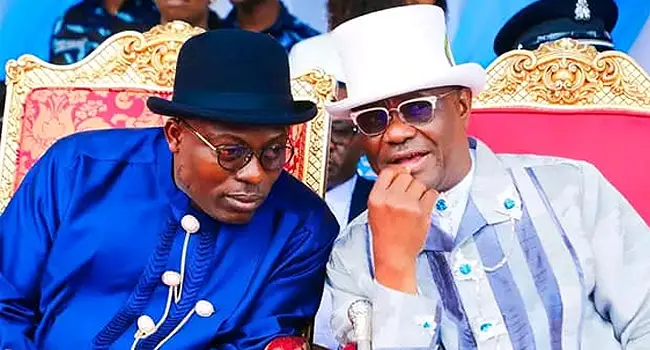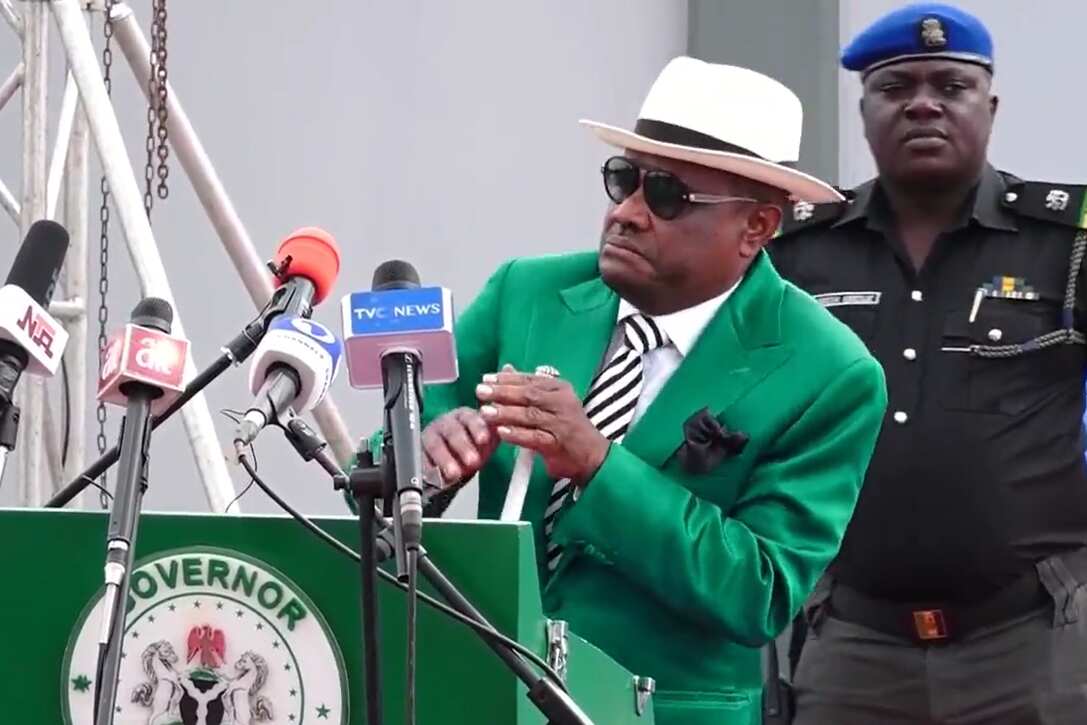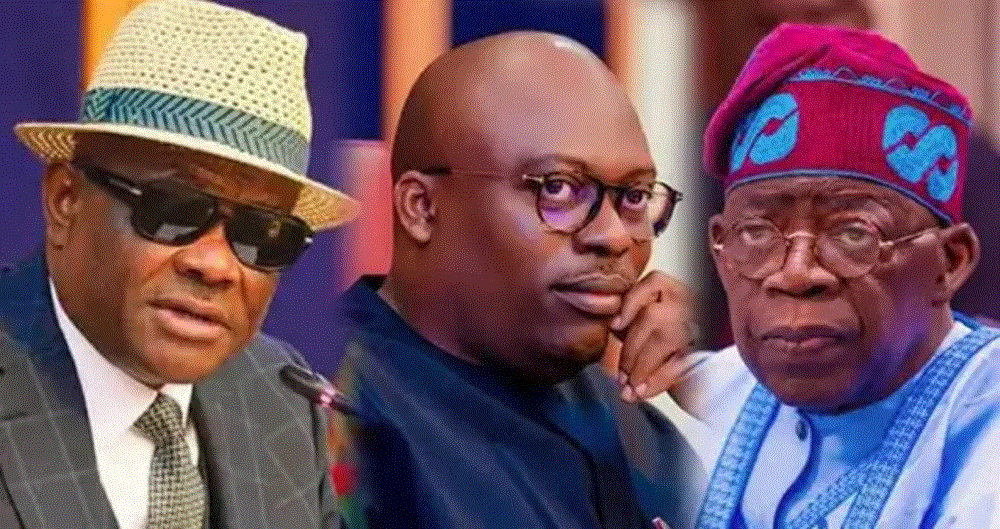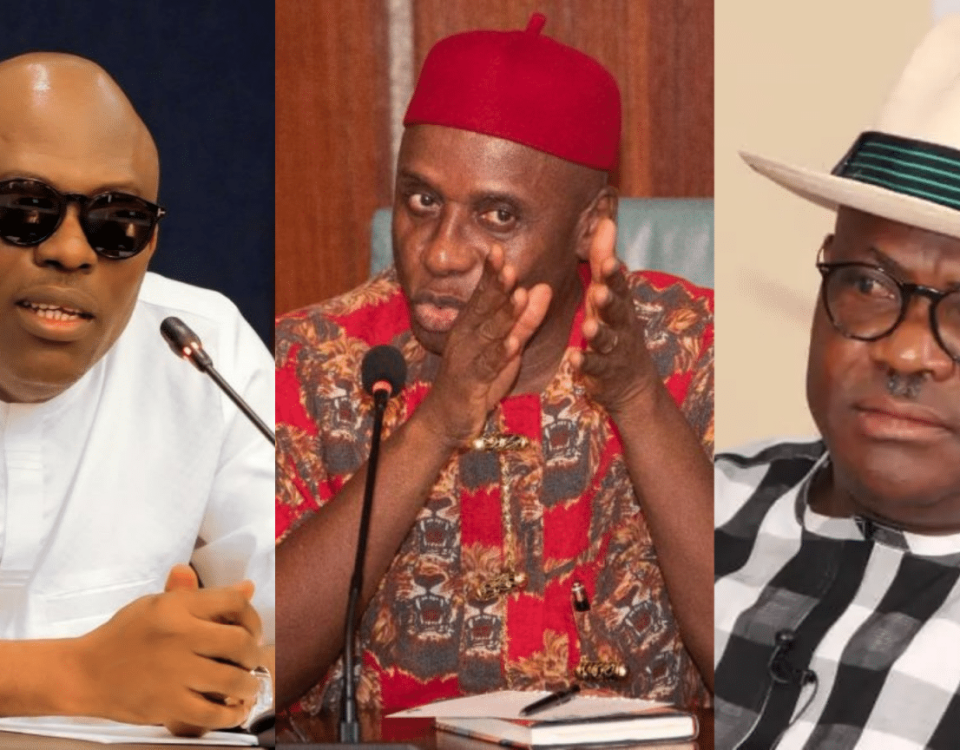
Nyesom Wike’s Most Controversial Political Fights
March 30, 2025
Rotimi Amaechi’s Advice to Siminalayi Fubara
March 31, 2025How Wike and Fubara’s Fights Started: The Genesis of a Political Crisis
The political landscape of Rivers State, Nigeria, has been rocked by a dramatic and unexpected power struggle between Nyesom Wike, the former governor and current Minister of the Federal Capital Territory (FCT), and his successor, Governor Siminalayi Fubara. Once allies, their relationship has deteriorated into a full-blown political battle, causing deep divisions within the state’s political structure.
But how did this fight start? What led to the breakdown of a once-solid political alliance? This article explores the origins of the Wike-Fubara conflict, the key events that fueled their feud, and its implications for Rivers State and national politics.
The Political Godfather and His Chosen Successor

Before the 2023 Rivers State gubernatorial elections, Nyesom Wike was the undisputed political leader of the state. As governor from 2015 to 2023, Wike controlled the People’s Democratic Party (PDP) structure in Rivers and had a significant say in who would succeed him.
- Wike handpicked Siminalayi Fubara, a former Accountant-General of Rivers State, as the PDP candidate for governor.
- Fubara was largely unknown in the political space but was seen as a loyal technocrat who would maintain Wike’s influence in state affairs.
- Wike used his political machinery to ensure Fubara’s victory in the 2023 elections, seeing him as a reliable successor who would protect his interests.
At first, everything seemed to be going according to plan—until tensions began to surface.
Early Signs of Trouble: Power Struggles Begin

Shortly after Fubara was sworn in as governor, reports emerged that he was gradually asserting his independence, a move that did not sit well with Wike.
- Fubara began making appointments without direct approval from Wike, signaling an attempt to establish his own administration.
- Wike, still influential as FCT Minister, allegedly expected Fubara to consult him on major governance decisions.
- Political observers noted a silent power tussle between the two, even though both men denied any rift at the time.
Despite these early warning signs, the situation soon escalated into open confrontation.
The State Assembly Crisis: A Turning Point
The biggest sign that all was not well came in late 2023, when the Rivers State House of Assembly became a battleground between Wike and Fubara’s loyalists.
- The Assembly, which was largely filled with Wike’s loyalists, initiated an impeachment move against Fubara.
- Fubara responded by dissolving the House of Assembly, a controversial decision that deepened the crisis.
- The conflict led to a physical confrontation, including a fire outbreak at the State Assembly complex, widely believed to have been orchestrated by political actors.
- Some lawmakers defected to the opposition APC, further complicating the situation.
This was a defining moment in the feud, as it confirmed that the power struggle had gone beyond private disagreements and into full-blown political warfare.
Wike’s Grip on the PDP Structure in Rivers

One of the core issues fueling the fight is control over the PDP in Rivers State.
- Despite leaving office, Wike retained control over the PDP structure, ensuring that key party figures remained loyal to him.
- Fubara, on the other hand, sought to take charge and assert himself as the new leader of the party in Rivers.
- The conflict over party control led to parallel meetings, factional endorsements, and political realignments.
For Wike, allowing Fubara to take over completely could mean the end of his political dominance in Rivers State. For Fubara, failure to take control would mean governing under Wike’s shadow.
Federal Interventions and Peace Talks

As the crisis deepened, the federal government and PDP leadership intervened to prevent a total breakdown of governance in Rivers State.
- President Bola Tinubu reportedly stepped in to broker peace between Wike and Fubara.
- The PDP national leadership also attempted to mediate, fearing that the rift could weaken the party in the state.
- Several high-level meetings were held, but despite public declarations of peace, tensions continued to simmer beneath the surface.
These interventions temporarily eased tensions, but the power struggle was far from over.
The Battle for Control of State Finances
Another major factor in the conflict is the control of Rivers State’s financial resources.
- As the former governor, Wike had immense control over state funds, and there were allegations that he still had a hand in financial decisions.
- Fubara, however, moved to assert control over the state’s treasury, sidelining some of Wike’s allies.
- This led to accusations of financial mismanagement and interference, further widening the rift between the two.
Financial control remains one of the biggest battlegrounds in the fight for supremacy.
The Future of Wike-Fubara Relations
With both men refusing to fully back down, the big question remains: what next?
- Will Fubara completely break free from Wike’s influence?
- Will Wike continue to fight to maintain control over Rivers politics?
- Could this lead to a major political realignment ahead of the 2027 elections?
As things stand, the crisis is far from over, and the coming months will determine who ultimately wins the battle for political control in Rivers State.
What started as a mentor-protégé relationship between Nyesom Wike and Siminalayi Fubara has now turned into one of Nigeria’s most dramatic political battles. Fueled by power struggles, control over party structures, financial disputes, and impeachment threats, this conflict has reshaped Rivers State politics in ways that will be felt for years.
While peace efforts continue, the underlying tensions suggest that this war is far from settled. One thing is certain: Rivers State politics will never be the same again.






